Student Blog
Erwin
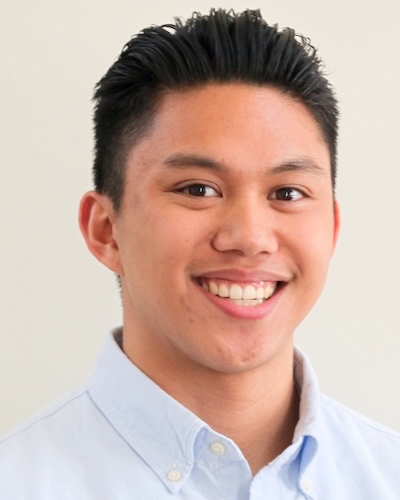
Momma, I Made It! ⟩
June 27, 2017, by Erwin
Classes Community Getting Involved School/Life Balance
Wow! Where has the time gone? It really seems like yesterday that I was a newly-admitted student walking on campus for the first day of classes. My time at USC has been nothing short of amazing and I can honestly say that I’ve grown so much here — not only as a therapist, but as a person.
Looking back at my career at USC, here are my few words of wisdom:
Learn: Don’t study for the sake of passing a class. This isn’t undergrad anymore; what you’re learning in occupational therapy school is going to be your craft. So don’t come in with the mindset of, “I need to get an A in this class.” It’s much more important to really understand the material and knowing how to apply it rather than knowing how to get an A. After all, an employer isn’t going to ask what your GPA was — they’re going to care if you’re good at what you do.
Get involved: USC has so many opportunities to get involved and it would be unfortunate not to take advantage of these opportunities. Exploring different opportunities allows you to discover your passions and strengths, connect you to USC, foster community, and build your resume. While at USC, I tried to get involved as much as possible. I’ve developed my leadership skills, built life-long friendships, and opened doors that would not have been possible.
Enjoy yourself: Graduate school can be stressful. There will be papers, exam, and projects — you might even question, “is this really worth it?” Just relax! We always encourage our clients to live balanced lives and we have to practice what we preach. After all, a balanced life is a healthy life. So while in grad school, take time to take care of yourself, enjoy the company of others, and don’t stress out too much about your classes. Like I said before, employers aren’t concerned about your grades.
Although graduation has arrived, I know what I’ve learned at USC will carry on throughout my lifetime. Occupational therapy is such a beautiful and rewarding profession, and regardless if you pursue a degree at USC or another university, the profession will be nothing but good to you.
Before I go, I want to share with you some of the people and moments that have meant the most to me while at USC.
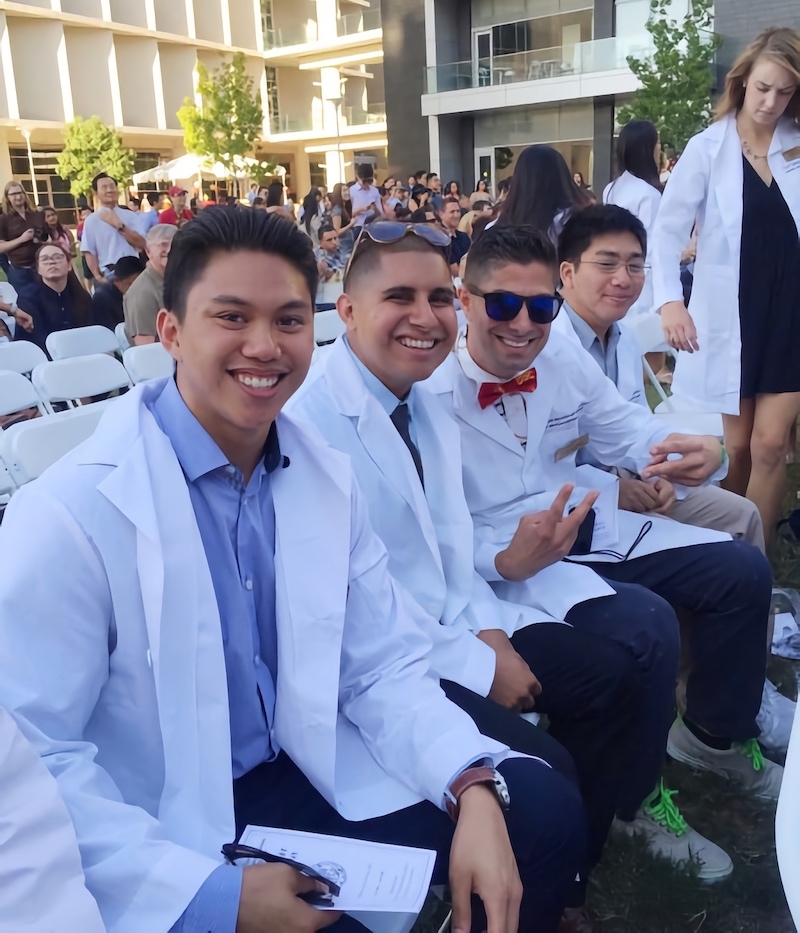
White Coat Ceremony 2015
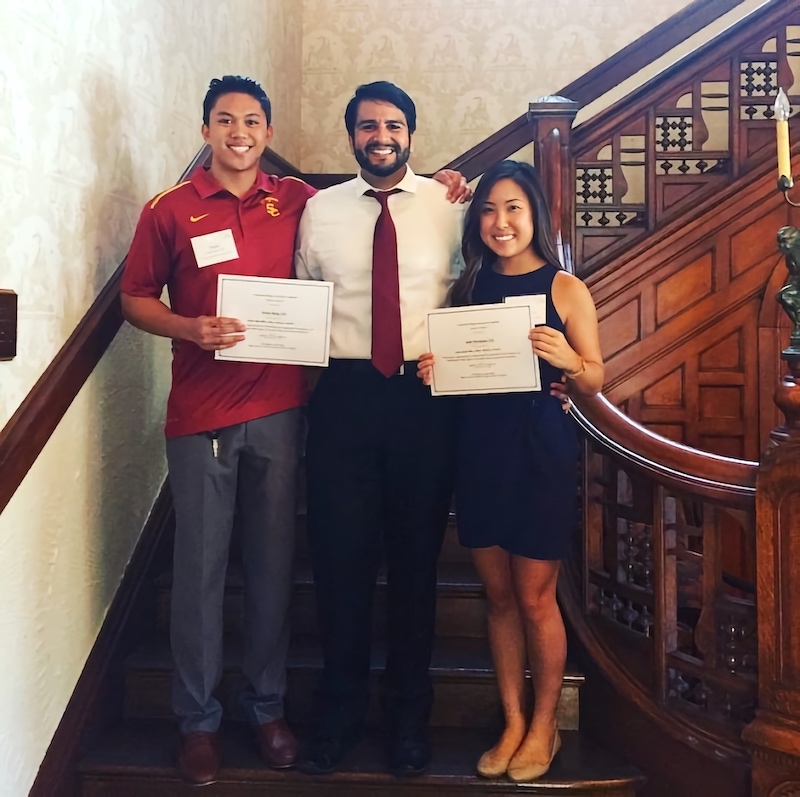
Dr. Delgado and his student delegates!
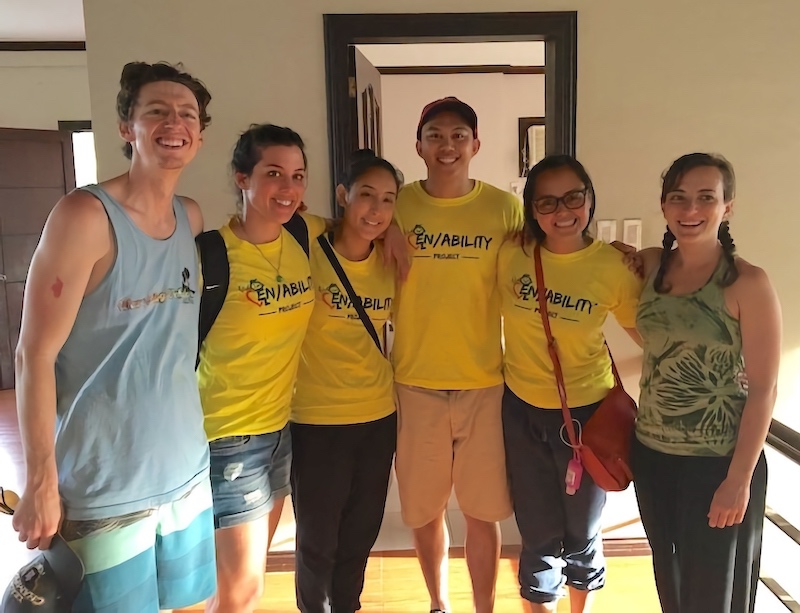
Philippines Externship team!
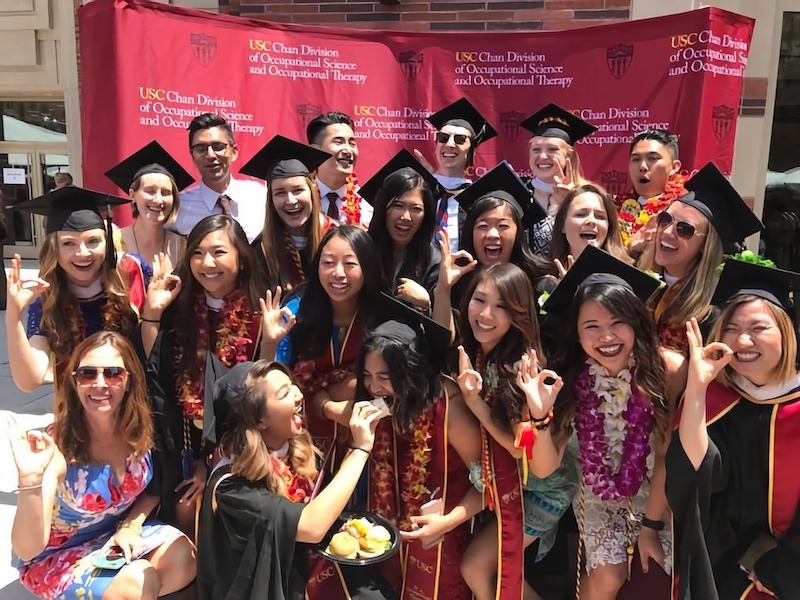
Cohort B(est)
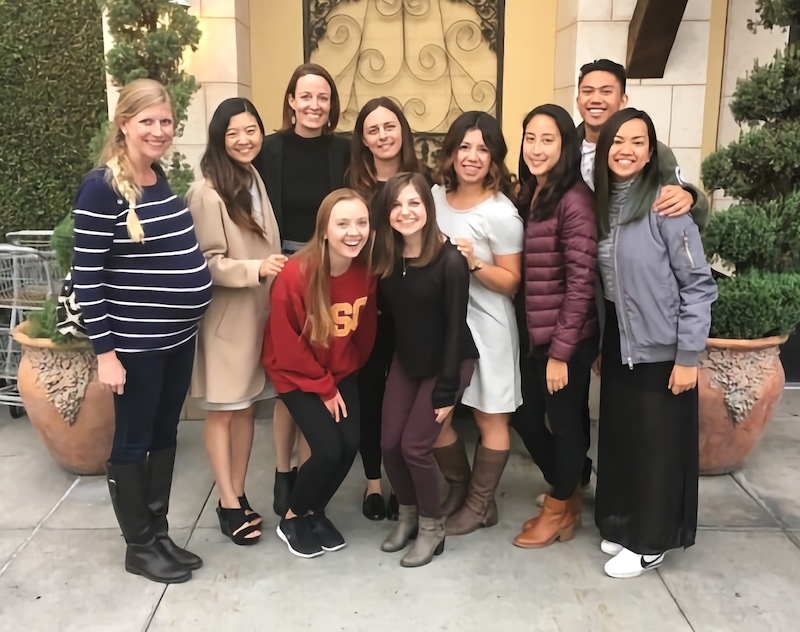
My amazing ambassador team 😊
⋯

Choosing Your Area of Practice ⟩
February 10, 2017, by Erwin
Many students come into the program expecting to practice in a specific area. And if you’re like 90% of most prospective occupational therapy students, it’d be a safe guess that you want to work in pediatrics. That was definitely me when I was applying to occupational therapy schools. I was so gung-ho about working with children; I did all my volunteer hours in a pediatric clinic and also worked with children with special needs. I was all-in on working with pediatrics . . . that is until I went to USC.
A misconception that some students have is that the program will train you to be an occupational therapists in a specific area of interest. However, that is not the case. USC, and all other occupational therapy programs, train you as a generalist. Thus, when you graduate, you are qualified to work in any area of occupational therapy. Here at USC, we have 3 practice immersions to assist students in developing mastery over the various domains of OT. Those immersions are adult rehabilitation, mental health, and pediatrics. It’s awesome because you get exposed to other areas of occupational therapy that you would have never thought you’d be interested in. In fact, the majority of students actually come into the program wanting to practice in one area, and end up loving something else by graduation!
While I thought I wanted to work in pediatrics when I started the program, today, I’m torn between adult rehabilitation and working in adolescent mental health. I enjoy the pace and the work that is done in physical rehabilitation, but I also enjoy the connections I made with clients during my fieldwork in adolescent mental health. It’s funny because I was so intimidated of both areas before entering the program, but now I can’t see myself doing anything else! Occupational therapy is such a wonderful and diverse profession that sometimes it’s hard to choose one area to work in. But on the flip-side, if you ever feel tired of working in one area, you can always mix it up and enter another area of practice!
⋯

Why USC? ⟩
February 6, 2017, by Erwin
Why should I attend USC? Many prospective students ask this question looking for a convincing sales-pitch. However, my job isn’t to sell people on USC, but rather, let them know the opportunities available here. USC is a wonderful school and we have an amazing program. However, it may not be the right fit for everyone. With that being said, here are a few reasons why I think USC OT stands out from the crowd:
- Networking
The Trojan Family is a powerful thing. Because of USC’s status in OT, and really the world, I wanted to be well-connected and part of that Trojan network. Being at USC has opened doors for me that I’m not sure would have been possible if I had went to another university. - Leadership
I strongly feel that what makes USC unique to other programs is its commitment to leadership. USC is known to be a leader for the profession of occupational therapy and the school encourages students to become leaders themselves. At USC, there are tons of opportunities for students to get involved — whether through student organizations or support from faculty to pursue your own leadership interests. Being at USC, I’ve grown so much as a leader and I know the skills I’ve learned here will benefit me throughout my career. - Research
USC is also known for its research contributions. Occupational science, the science that serves as the foundation for occupational therapy, was invented here at USC and we continue to be at the forefront of research. Some of the most exciting and groundbreaking research is being done in our division and students have the opportunity to be research assistants. When I entered the program, I didn’t have much interest in research, but it really is so important to validate what we do as therapists and to discover more effective treatments so that our clients can receive the best care. - Faculty
USC’s faculty consists of some of the best therapists and researchers in the world. Being leaders in occupational therapy, many of our faculty are the ones writing our textbooks so they can answer any questions you may have. In addition, they are so supportive and almost all have an open-door policy so that you can discuss anything from school to life.
Ultimately, it is up to you to decide if USC is the right fit for you. Everyone has their own priorities and path to become an occupational therapist. For myself, going to USC was absolutely the best decision.
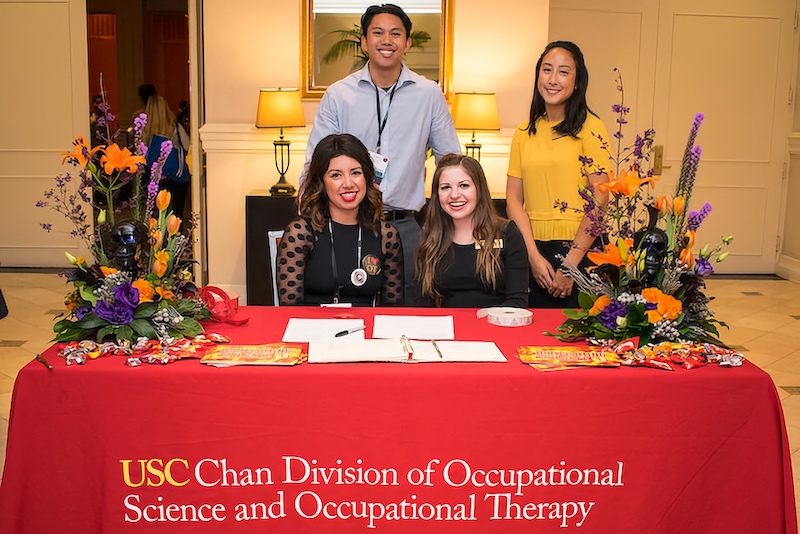
Me with the other student ambassadors!
⋯

Smell the Roses ⟩
January 17, 2017, by Erwin
Community Living in LA What are OS/OT?
Exciting things were happening in the world of OT during the holidays. On January 2nd, occupational therapy had the honor of having a float at the 128th Tournament of Roses Parade.
If you didn’t know, 2017 marks 100 years of occupational therapy. That’s an awesome achievement for our profession and a testament to OT’s contributions to society. The float is a celebration of our wonderful profession and provided exposure about what OT is to the millions of people that watch the Rose Parade.
In anticipation for our 100 years as a profession, the American Occupational Therapy Association decided on a centennial vision:
“We envision that occupational therapy is a powerful, widely recognized, science-driven, evidence-based profession with a globally connected and diverse workforce meeting society’s occupational needs.”
This float was an excellent opportunity to support our profession in meeting its centennial vision of being “widely recognized” and “globally connected”!
This float could not been done without the support of the Occupational Therapy Association of California, which sponsored the float, and its volunteers. Many USC faculty members and students dedicated their time to help with this awesome project, and being one of those volunteers, I can proudly say it was worth the time and effort! Read more about the float.
Here are some photos of the float and the volunteers that helped to make this float possible.
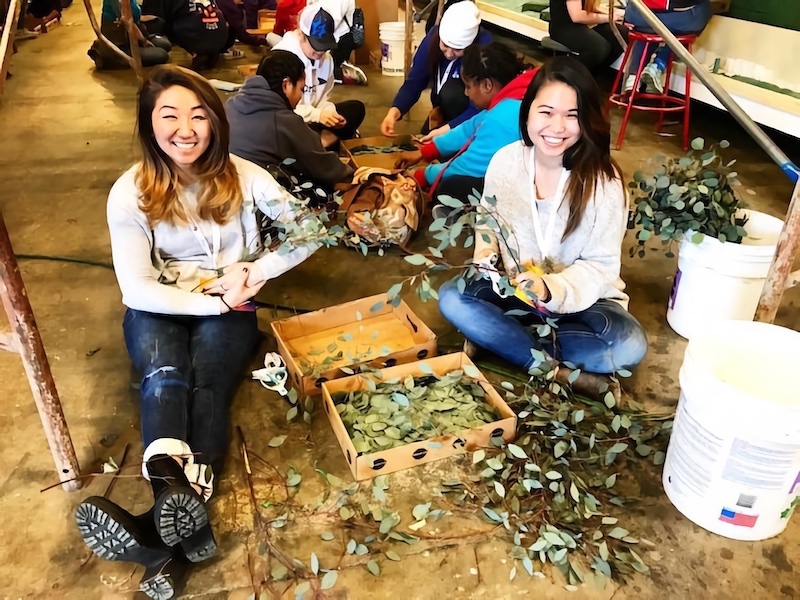
USC OT students, Alisa and Evelyn, helping decorate the float!
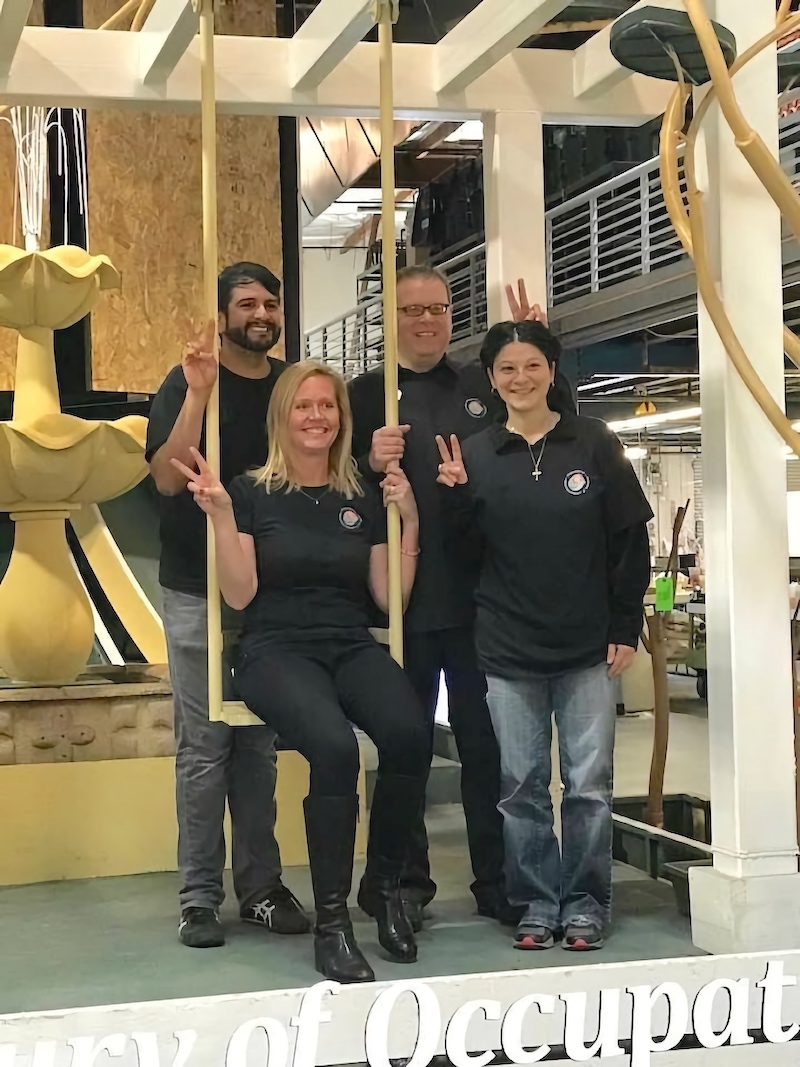
USC OT faculty members volunteered so much of their time to make this float a reality
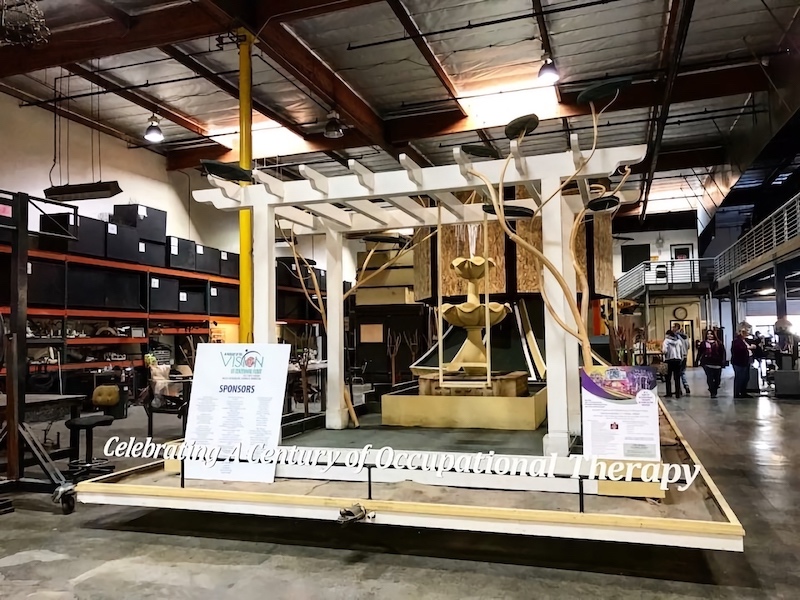
Early stages of the float
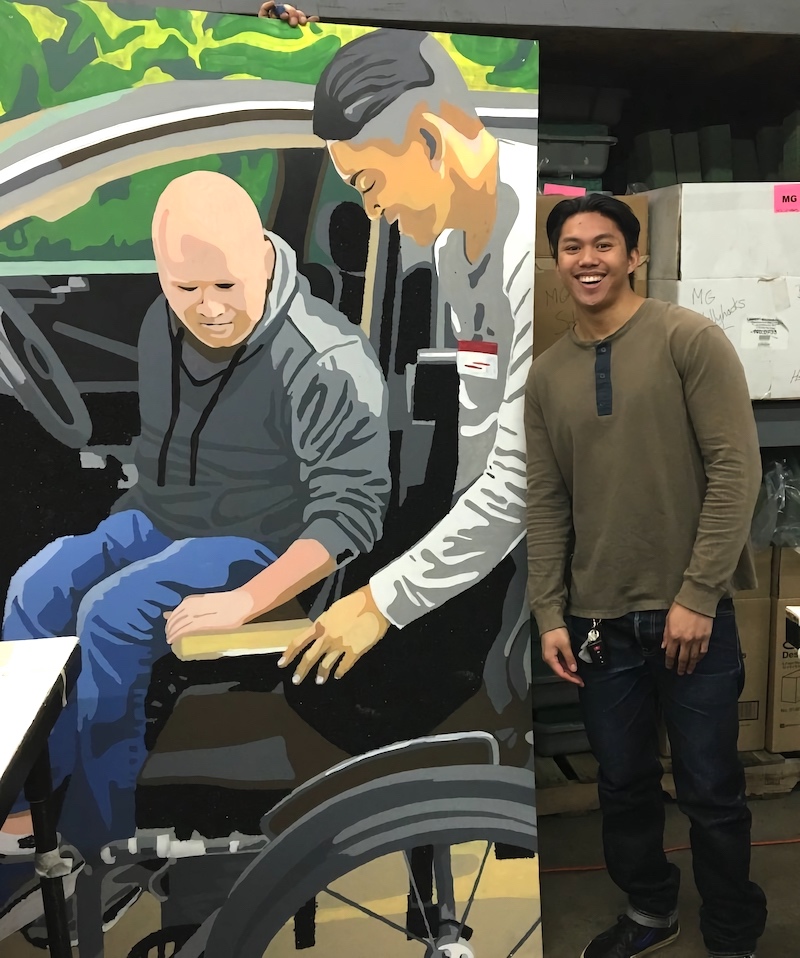
This guy on the float looks familiar
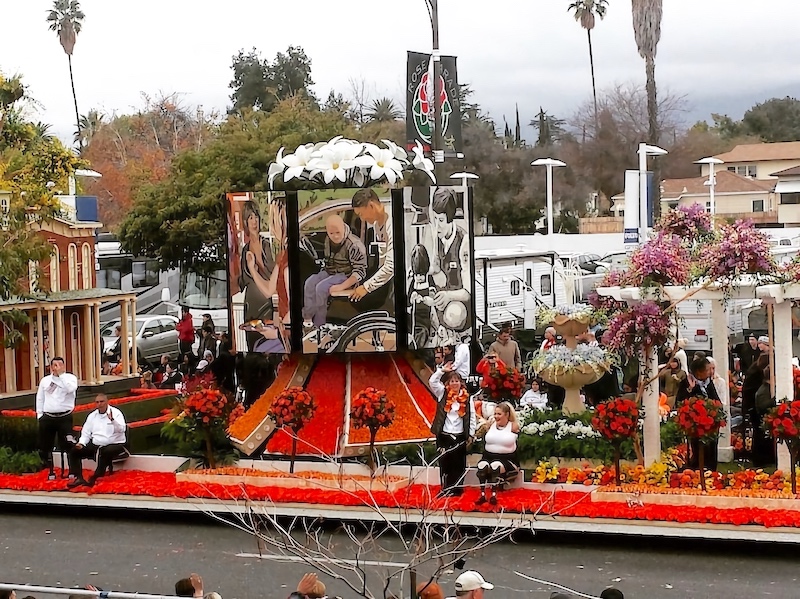
And here it is: the 2017 OTAC Rose Parade Float!
⋯

Cooking From All Woks of Life ⟩
December 5, 2016, by Erwin
For my last lab in the adult rehabilitation course, my classmates and I had the opportunity to cook using adaptive equipment. Not only was this lab delicious, but it was also educational!
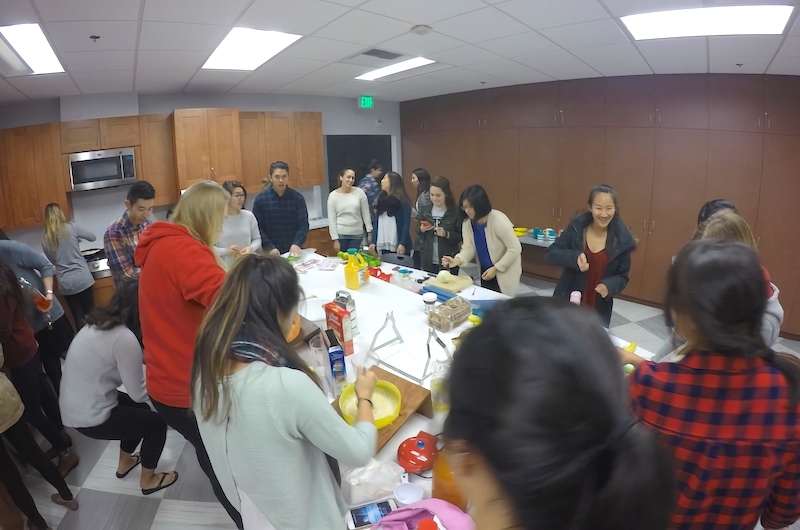
USC OT students getting ready to cook!
Sometimes, individuals can have difficulty completing cooking and feeding tasks after an injury. However, this does not mean they are not capable of cooking or feeding. Adaptive equipment gives individuals the opportunity to cook and feed independently.
In this picture, my classmates, Vanessa and Jamie, are using a rocker knife to cut mushrooms. Rocker knifes are especially effective for individuals that only have use of one arm. Rocker knifes use a rocking motion instead of a back-and-forth motion so that they are able to cut with one hand!
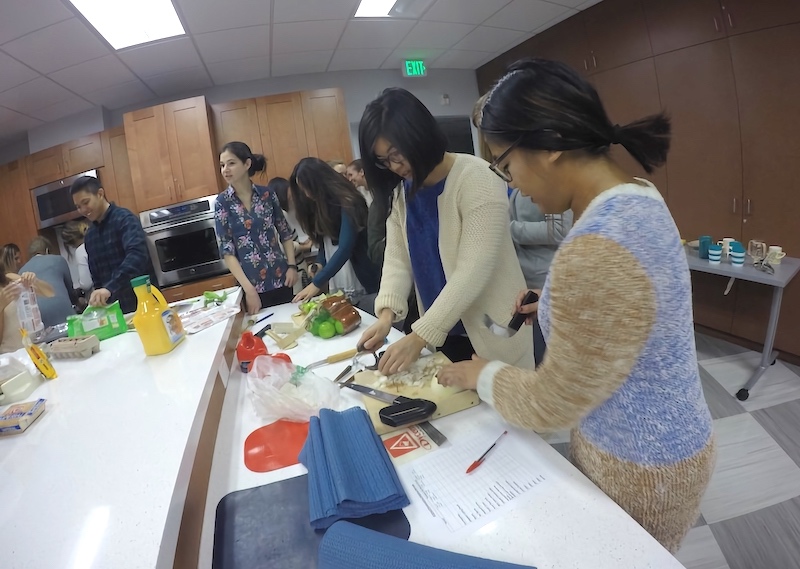
Students using a rocker knife!
In this picture, my classmates Shannon, Annie, and Amy are stirring pancake batter in a bowl holder. This device anchors the bowl so that someone with limited strength, in-coordination, or is only able to use one arm can meal prep in a bowl!
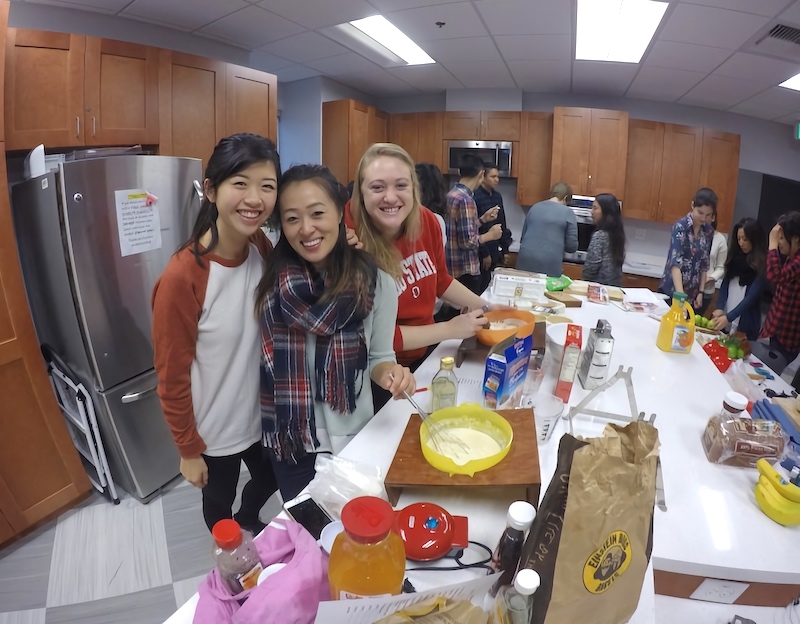
Students getting ready to make pancakes!
Even little things you may not notice can help individuals with a disability cook or feed. Our white countertops are not only stylish, but also have a purpose. People with low vision can have difficulty detecting items; so having a surface that provides high contrast and no patterns is helpful. Even the height of the counter is important. Having a counter that is at waist level is useful for people that use a wheelchair so they can work at an appropriate height.
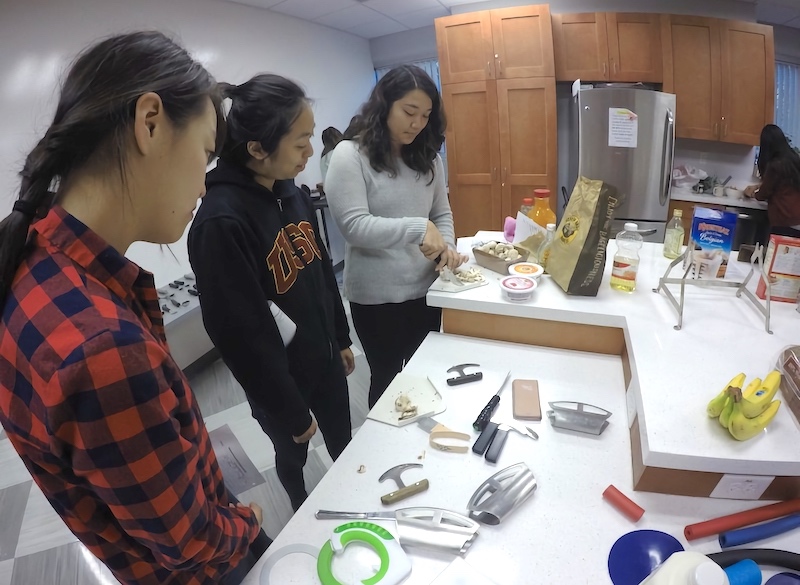
Showing off our universal design kitchen!
All of these devices and modifications are just the tip of the iceberg. Having a disability does not mean you cannot do something, and as occupational therapists, we should support independence for our clients!
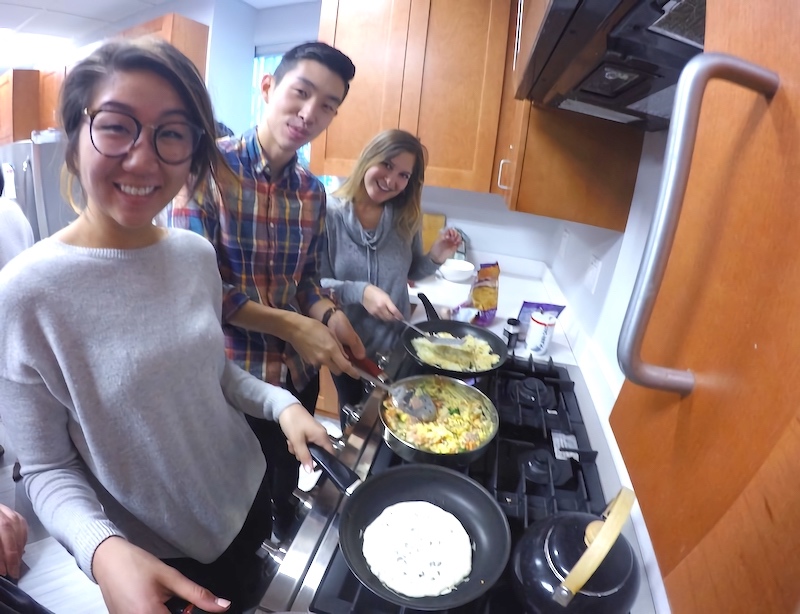
Bon Appetit!
⋯





